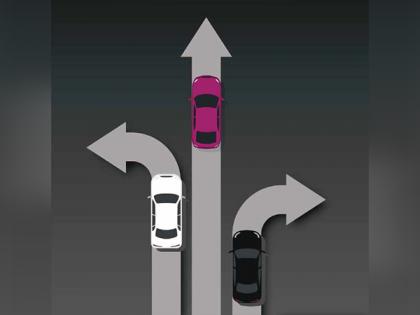Indian Auto industry needs to fix execution gaps to succeed in next decade: Report
By ANI | Updated: June 19, 2025 13:03 IST2025-06-19T12:57:12+5:302025-06-19T13:03:34+5:30
New Delhi [India], June 19 : India's Auto industry could fall behind in the global race if it doesn't ...

Indian Auto industry needs to fix execution gaps to succeed in next decade: Report
New Delhi [India], June 19 : India's Auto industry could fall behind in the global race if it doesn't fix serious internal execution problems, according to a new study by Vector Consulting Group.
The report warns that automakers and suppliers must change how they work together to meet the challenges of the coming decade, especially with the shift to electric vehicles (EVs).
Based on conversations with over 100 senior executives from carmakers and Tier-1 suppliers, the study reveals that 88 per cent of auto component suppliers in India are struggling with a shortage of R&D capacity.
Many established automakers are facing delays of up to 24 months in their EV programs, not because of a lack of vision or technology, but due to problems in execution.
Ravindra Patki, Managing Partner at Vector Consulting Group, said, "The bottleneck is internal: poor coordination, capacity mismatches, and execution blind spots. To thrive in this new era, the industry must rethink how it worksnot just what it builds."
The report points out that many automakers are trying to run both EV and traditional fuel (ICE) vehicle programs using the same teams and systems.
Engineering, procurement, and testing departments are often shared across both, causing delays and repeated work. Even dedicated EV teams depend on old processes, which slows them down.
Suppliers are also feeling the pressure. They're expected to handle multiple complicated projects from various carmakers, often without clear forecasts or timelines. This leads to last-minute changes in design, higher risks, rising costs, and overworked engineering teams.
"If OEMs want reliable delivery, they must involve suppliers early, align them on product priorities, and integrate them into the decision-making processnot just the sourcing cycle," added Patki.
The study also highlights problems faced by EV startups. While they don't have the burden of managing older vehicle programs, many still overpromise launch dates and depend too much on digital fixes like over-the-air (OTA) updates after the vehicle is released. This quick-fix approach can damage customer trust and raise long-term costs.
To move forward, Vector Consulting Group recommends a complete reset in how automakers and suppliers work together.
Instead of focusing only on cutting costs, the report urges companies to form true partnerships, where they share risks, collaborate on design from the beginning, and work towards common goals. The study also suggests setting up joint teams and using real-time progress tracking tools to prevent delays.
Patki said, "The winners of the next decade won't be those with the flashiest prototypes, but those who can launch, scale, and improve faster than others. That's why the industry must stop patching old systems and start building new ones."
Disclaimer: This post has been auto-published from an agency feed without any modifications to the text and has not been reviewed by an editor
Open in app